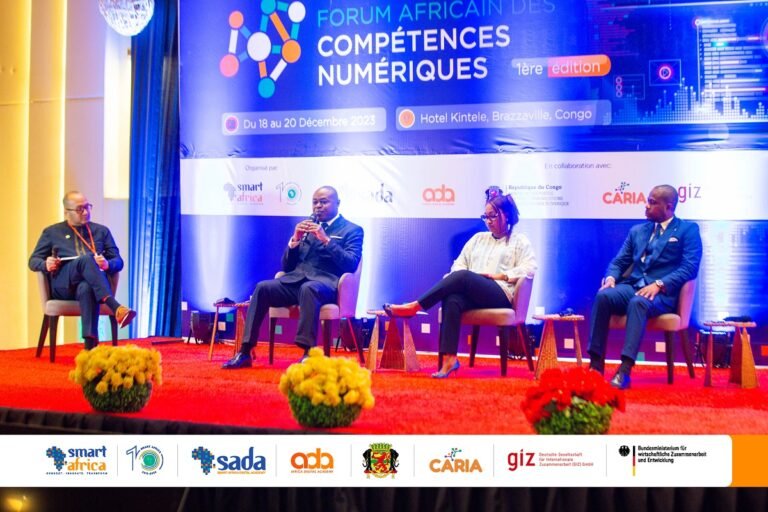Smart Africa, in collaboration with the Republic of Congo’s (DRC) Ministry of Posts, Telecommunications, and Digital Economy, has organised the Digital Skills Forum, a pan-African event focused on promoting the development of digital skills in Africa.
The event, held through the Smart Africa Digital Academy (SADA) in partnership with the Centre Africain de Recherche sur l’Intelligence Artificielle (CARIA) and the Africa Digital Academy (ADA), aimed to broadcast the importance of digital skills for African pupils and students.
The three-day forum, themed, “Building a digital talent pipeline for Africa,” covered topics such as digital education, professional training, digital inclusion, access to infrastructure and technologies, and the promotion of entrepreneurship and digital innovation.
During the forum, Smart Africa launched the Smart Devices blueprint, developed under Congo’s leadership. This blueprint seeks to establish a sustainable framework for affordable devices in Africa. Additionally, the Smart Africa Youth Chapter in Congo was launched, providing a platform for education, collaboration, and empowerment to foster a new generation of tech-savvy and innovative business leaders, specifically focusing on equipping youth and entrepreneurs with digital competencies.

Smart Africa CEO, Lacina Koné, stressed the need to bridge the digital skills gap, stating, “lack of relevant skills in this digital age can limit opportunities for African countries to make the most of digital technologies as they will continue to play catch up with the rest of the world if the gap is not bridged.”
He added that Africans must “possess the necessary digital skills” to remain “prepared for the digital jobs of the futured.”
Congo’s Minister of Posts and Telecommunications and Digital Economy, Léon Juste Ibombo, spoke on the usefulness of such forums, noting that, “the average 4.5% increase in GDP in Africa thanks to digital technology shows that this sector is making a real contribution to the development and diversification of economies. That’s what this forum is all about.”
The forum featured panel discussions, training sessions, master classes, expert keynotes, exhibitions, demonstrations, competitions, and other activities, drawing over 700 participants, including government representatives, international organizations, private sector members, students, educators, and entrepreneurs.
Source: APO Group




